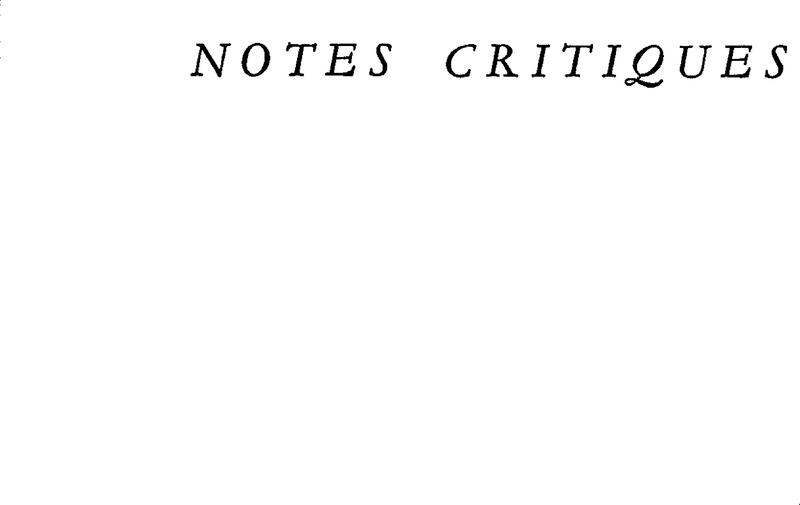No CrossRef data available.
Published online by Cambridge University Press: 28 July 2009

(1) The Somali Dispute (New York, Frederik A. Praeger, 1964), p. 15.Google Scholar
(2) Somali Liberation Songs, The Journal of Modern African Studies I (1963), 505.Google Scholar
(3) “Mankind instinctively takes language as the badge of nationality”, one Westerner once claimed. See Freeman, Edward A., Race and Language, Historical Essays, third series (London, Macmillan and Co., 1879), p. 203.Google Scholar
(4) President's Address to the Tanganyika National Assembly, December 10, 1962, special publication, p. 21.
(5) Nationality in History and Politics 2, (London, Routledge and Kegan Paul, 1951), p. 87.Google Scholar
(6) A Political History of Ghana (Oxford, Clarendon Press, 1963), p. 510.Google Scholar
(7) See Coleman, James S., Nigeria, Background to Nationalism, (Los Angeles, University of California Press, 1958), p. 146.Google Scholar
(8) Onitsha Market Literature, Transition, IV (1965), pp. 28–29.Google Scholar
(9) Ibid. p. 29. Soyinka's play in question is The Lion and the Jewel.
(10) A speech given in November 1934 in Lagos. See Zik, , A Selection From the Speeches of Nnamdi Azikiwe (New York, Cambridge University Press, 1961), p. 23.Google Scholar
(11) See African Proverbs, compiled by Charlotte and Wolf Leslau (Mt. Vernon, New York, Peter Pauper Press, 1962). Introductory page.Google Scholar
(12) Onitsha Market Literature, op. cit. p. 31.
(13) Onitsha Market Literature, pp. 31–32.
(14) Ghana: The Autobiography of Kwame Nkrumah (New York/Edinburgh, Nelson, 1957), p. 19.Google Scholar
(15) Ibid. p. 21.
(16) Ibid. p. 32.
(17) Ibid. p. 41.
(18) Nigeria, op. cit. pp. 114–115.Google Scholar
(19) For a sensitive socio-political analysis of this kind of phenomenon see Apter, David E., Political Religion in New Nations in Geertz, Clifford (ed.), Old Societies and New States (London, Free Press of Glencoe, 1964).Google Scholar
(20) See, for example, Nkrumah, , I Speak of Freedom. A Statement of African Ideology (New York, Frederick A. Praeger, 1961), pp. 90–91.Google Scholar
(21) “Messianism and Nationalism in Black Africa”, translated by van den Berghe, Pierre L. from an article from Cahiers Internationaux de Sociologie, XIV (1953), 41–65)Google Scholar. See van den Berghe, , Africa: Social Problems of Change and Conflict (San Francisco, Chandler Publishing Co., 1965), p. 460.Google Scholar
(22) See Sithole, N., African Nationalism, (Cape Town, Oxford University Press, 1959)Google Scholar. See also Sithole, 's article, African Nationalism and Christianity, Transition, IV (1963).Google Scholar
(23) Senghor, L. S., Negritude et humanisme (Paris, Seuil, 1964), p. 24.Google Scholar
(24) Senghor, , On African Socialism (London 1964), p. 74.Google Scholar
(25) Autobiography, op. cit. p. 28.Google Scholar
(26) Ibid. pp. 107–108.
(27) This rendering is from the Penguin Classics' edition of The Republic, Book X (“The Effects cf Poetry and Drama”) (London 1963), p. 383.Google Scholar
(28) Foster, Michael B., Masters of Political Thought (London, George G. Harrap, 1961, reprint) I, p. 62.Google Scholar
(29) “Shakespeare is my favourite. I have read all his plays, and have reread some of them — like Julius Caesar, Hamlet, The Tempest, Anthony and Cleopatra and Henry V—more than three times. Some of the mighty lines of Shakespeare must have influenced my outlook on life”. See Awo, , The Autobiography of Chief Obafemi Awalowo (Cambridge University Press, 1960), p. 70.Google Scholar
(30) Autobiography, op. cit. p. v.Google Scholar
(31) I Speak of Freedom, op. cit. p. 71.Google Scholar
(32) Ibid. The italics are Nkrumah's.
(33) “The Nzima Literature Society […] is still functioning today”, Nkrumah tells us in his autobiography two decades after he formed it. See Autobiography, op. cit. p. 21.Google Scholar
* This paper was presented at a conference on Language Problems in Developing Countries held near Washington D.C. in November 1966 under the auspices of the Social Science Research Council of the United States. It is printed here with the permission of the Committee on Sociolinguistics of the Council.
(34) See Hodgkin, , Nationalism in Colonial Africa (first published in 1956) (New York, New York University Press, 1957), esp. pp. 154–155.Google Scholar
(35) Julius Caesar, II, I. Quoted by Ndabaningi Sithole in his book African Nationalism 2 (first published 1959) (London, Oxford University Press, 1961), p. 57Google Scholar. We have referred to James Coleman's remark that in a colonial school “Shakespeare and the Bible held the stage”. What Sithole was concerned with in this particular chapter was the influence of the Bible and the Church on the growth of African nationalism. This point is discussed in similar terms in my book The Anglo-African Commonwealth (London, Pergamon Press, 1967).Google Scholar